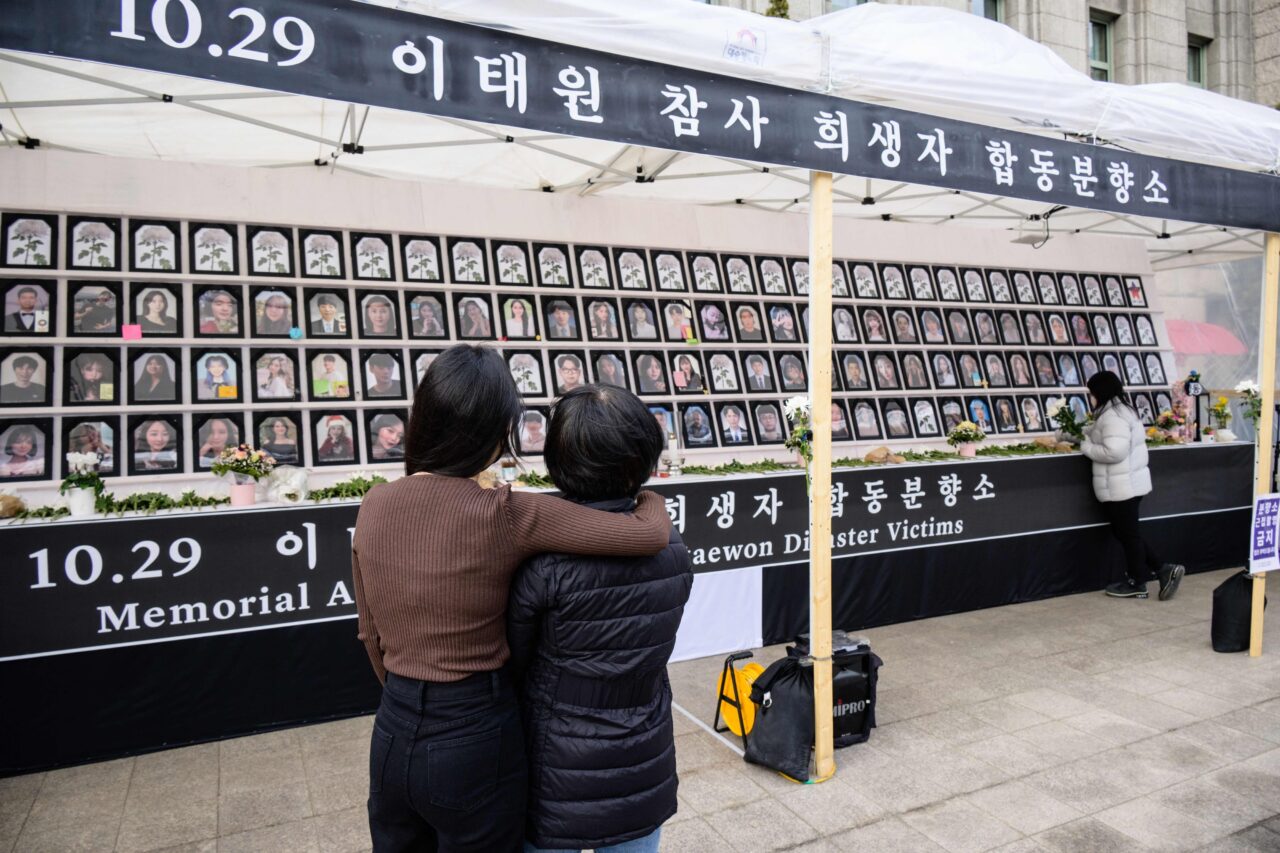By contrast, Itaewon is a central part of everyday city life. The crowd surge occurred on a sloping alley lined with bars and clubs, clearly visible to passersby and security cameras. The tragedy unfolded in real time in full public view. The familiarity of the setting made the loss feel more intimate. Yet life quickly returned to “normal” in the days that followed. The alleyways reopened. Cafés filled with customers again. Halloween decorations quietly disappeared.
In the halls of power, an implicit hierarchy of mourning emerged where some deaths were recognized through official gestures while others were sidelined or allowed to fade from public view. These limited official responses, from the short mourning period to the lack of lasting memorials, were calculated to, by design, make the public forget.
This selective memorialization exposes how grief is unevenly distributed, governed by whose lives are seen as legitimate and whose deaths are considered an inconvenience. French philosopher Michel Foucault referred to this as biopolitics: the quiet management of life and death, where institutions decide whose pain is worth acknowledging and whose is not. The Itaewon tragedy laid bare how grief, like everything else, is distributed along lines of power to be managed, categorized, and often ignored. Mourning is not just an emotional experience. It is political.
As I (Cha) noted during the hearings, this form of public judgment became a second blow to the families: “They were not only grieving—they had to justify their grief.”
In a society where moral assumptions condition mourning, some deaths are quietly deemed unworthy of collective sorrow.
AFTER ITAEWON: WHAT MUST WE REMEMBER?
Why do people open their hearts to some deaths and turn away from others? Why do people normalize suffering as part of everyday background noise?
South Korea is a country shaped by the rapid layering of industrialization, democratization, and globalization. Over just a few decades, high-stakes competition and cultural expectations of restraint have pushed grief into the private sphere while the state trends toward mourning in procedural rather than collective ways.
The Itaewon hearings, with victims’ families present in the room, marked a significant change from previous practice in terms of governing. Still, efforts to create an independent investigative body stalled, leaving bereaved families without a strong institutional voice.
Predictably, the hearings closed without a binding resolution. However, February 2023 saw the National Assembly Interior and Safety Minister Lee Sang-min impeached for negligence in disaster planning and response after the Itaewon tragedy, showing that civic pressure could no longer be ignored, though the Constitutional Court overturned the decision that July.
Several senior police officials, including the Yongsan district police chief, were dismissed or indicted, while the Seoul metropolitan police chief was later acquitted. No lawmakers faced direct consequences. Despite televised hearings, public vigils, and expert testimony, systemic reforms to Korea’s disaster response infrastructure have stalled.
Today South Korea faces a political crossroads.
In December 2024, President Yoon Suk-yeol was impeached over his brief martial law decree; in April 2025, the Constitutional Court removed him from office. Many viewed the move as an authoritarian overreach aimed at consolidating power amid declining public trust. While the Itaewon disaster was not the immediate cause, it marked an early turning point in growing disillusionment with the government’s failure to protect its citizens.
This moment of political rupture marks a profound shift in the nation’s direction. It requires significant reflection on how the state addresses death in public life. Who is considered deserving of protection? Whose voices are allowed to influence memory? When the next disaster occurs, who will society choose to remember—or quietly forget? If mourning is to have any meaning, it must prompt action.
Governments can no longer view disasters as unpredictable misfortunes. Recent wildfires, aviation accidents, and other calamities across South Korea reflect the global trend that disasters are no longer exceptional. In this precarious era, leaders must reevaluate relationships with vulnerability, grief, and one another. The government must go further by adopting a new social contract of care that focuses on prevention, guarantees quick responses, and provides long-term support for those left behind.
Our futures depend on it.
